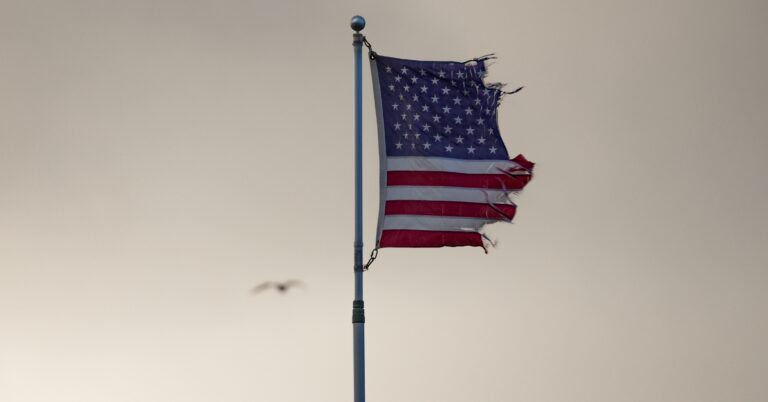
How to curb the culture wars
I’ll be honest. I’m not a fan of the term “culture wars.” Too often it’s used to minimize what are real and important debates about significant problems facing the country — even critical First Amendment questions. Too often important debates around education, faith, economics, free speech, or other issues are treated dismissively by invoking the term.
But it’s likely here to stay.
So, if we’re going to use it, let’s apply it only to the factions of a debate focused more on tribal superiority (aka my team vs. your team) than the substance of an issue. It fits when the goal isn’t to persuade or to find solutions but to score points for the team.
What makes a culture war?
Often these begin as real debates with major implications. Many Americans engage in discussion in earnest because they believe they have the right solution, and their opponents are wrong. Very often these debates affect civil liberties or other issues that matter to people.
But somewhere along the line the fight becomes about the fight itself rather than the issue.
When that happens — when the debate about a real challenge becomes one that doesn’t just divide people over real disagreements but instead becomes a debate that is about dividing two sides — we all lose.
What does that mean?
Society thrives on debate and collaboration, and we lose that when culture wars make critical and necessary debates less about competing ideas and more about the fight. We become determined to win the fight, or to see the other team lose the fight, not to actually solve the underlying issue. (That’s how non-cultural disagreements end up getting lumped in as part of the culture wars.)
Serious and important debates around race, curriculum, and other topics, for example, are getting sidetracked into name calling and tribal fights.
Public leaders are fanning the flames with “bias reporting”
Often, it’s the government itself that takes up arms in the “culture wars,” inviting citizens to go to war with one another on tribal lines instead of actually trying to solve a problem, even when the government’s invitation itself threatens First Amendment rights.
Last month, Minnesota proposed a “bias reporting system,” in which alleged bias incidents would result in putting citizens on a government database — when these incidents aren’t even considered a crime. Americans for Prosperity immediately spoke out against this threat to speech:
“Charging citizens with monitoring and reporting on each other creates a culture of mistrust and fear which will in turn chill all forms of speech. … the answer to bad speech is not reporting fellow citizens’ unpopular viewpoints and expressions to an unaccountable bureaucrat…”
Unfortunately, that wasn’t the end of it. Another state might bring this concept to the education system: The Washington Post reported that the Fairfax County School Board in Virginia is considering a similar bias-incident reporting system, as is neighboring Loudoun County.
The state shouldn’t dictate who gets to say what and monitor citizens to ensure they’re not saying anything the state dislikes. And we shouldn’t want the state to have this power. Any power given to the government can be used against you someday. The idea of a “bias reporting system” is truly Orwellian.
Importantly, it accomplishes nothing.
When it comes to these disagreements, the underlying issues are too important to relegate to the heaps of the “culture wars” and simply treat as yet another battle in a never-ending fight. We need to be able to debate ideas and work toward solutions. A system for ratting out the other side makes the debate tribal, no matter how important it is.
The disagreements facing our country are, at their heart, about the struggle to define America. As a country of more than 300 million people, there are many different opinions and perspectives on what America is and should be. As you can imagine, with hundreds of millions of people, we’ll never fully agree. We need to find ways to embrace our differences and tap into the power of civil debate.
“Us vs. them” versus “us or them”
Conflict in a country as diverse as ours can be good. It’s how we approach our conflict that matters. For example, “us vs. them” can be a helpful mindset in policy debates when it comes to laying out the issues and arguing through their points; it’s when it becomes “us or them” that we all lose. If you aren’t interested in even win-win solutions anymore because that means the other side would win too, we all lose.
That’s another reason the work being done by the Foundation for Individual Rights and Expression is so important. As I mentioned last year when FIRE first announced its expansion from defending speech on college campuses to defending speech off-campus too, FIRE can help push back on the spread of the “culture wars,” in a way that’s effective – and needed:
These days, inflammatory (see what I did there?) voices offer extreme “solutions” for our differences — “solutions” that not only wouldn’t be effective but would further polarize our country and potentially trample over others’ civil rights.
However, FIRE can protect Americans’ First Amendment rights and fight back against censorship, cancel culture, and other examples of illiberalism using the tools our country already has in place to right wrongs — litigation and legislation among them — while remaining honest and persuasive.
In that vein, in the next few months I’m looking forward to having some guest writers share their perspectives on a few issues, including how threats to speech manifest at all levels of government and just how concerned we really should be about artificial intelligence (AI) and ChatGPT. Stay tuned!



